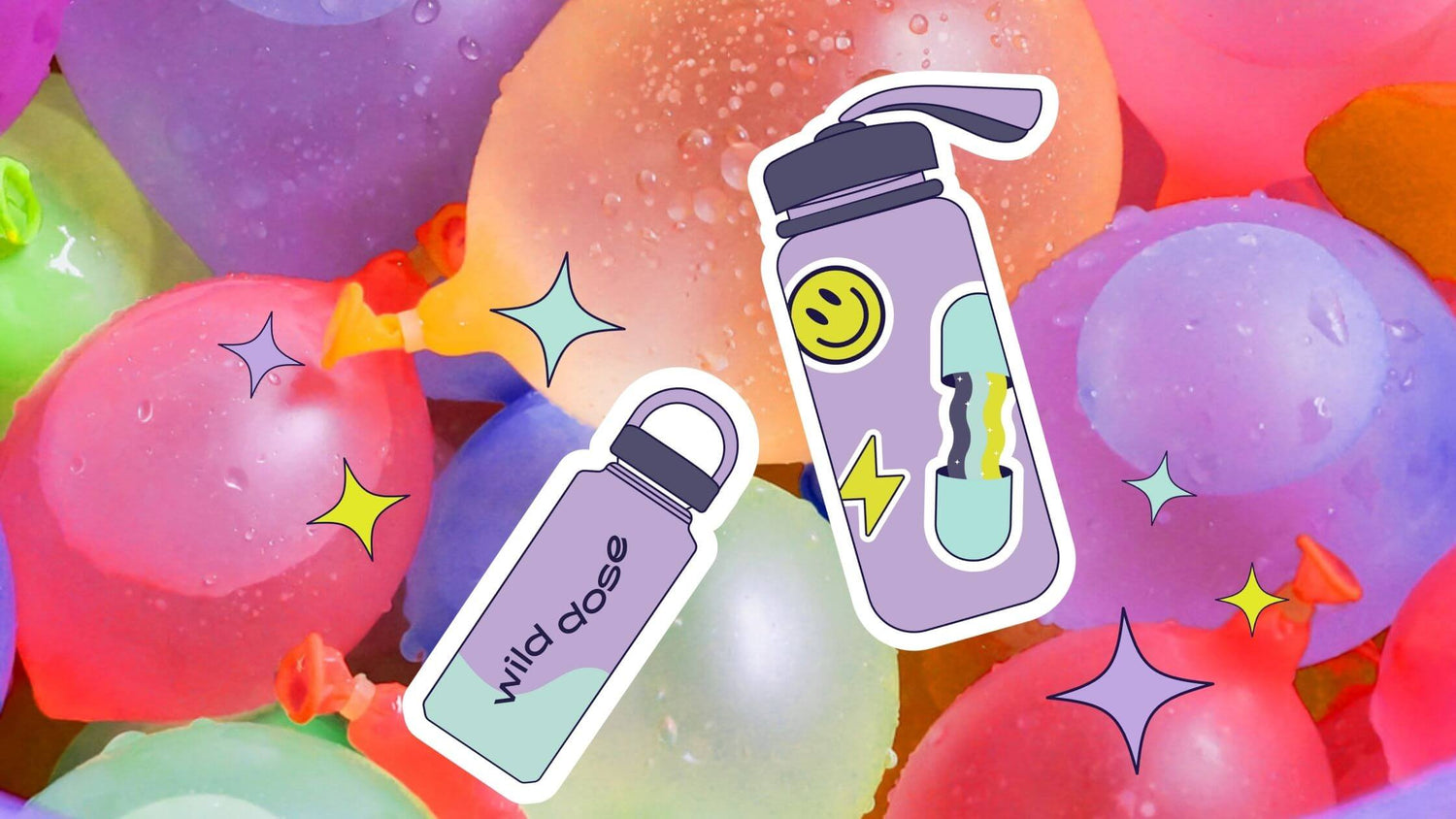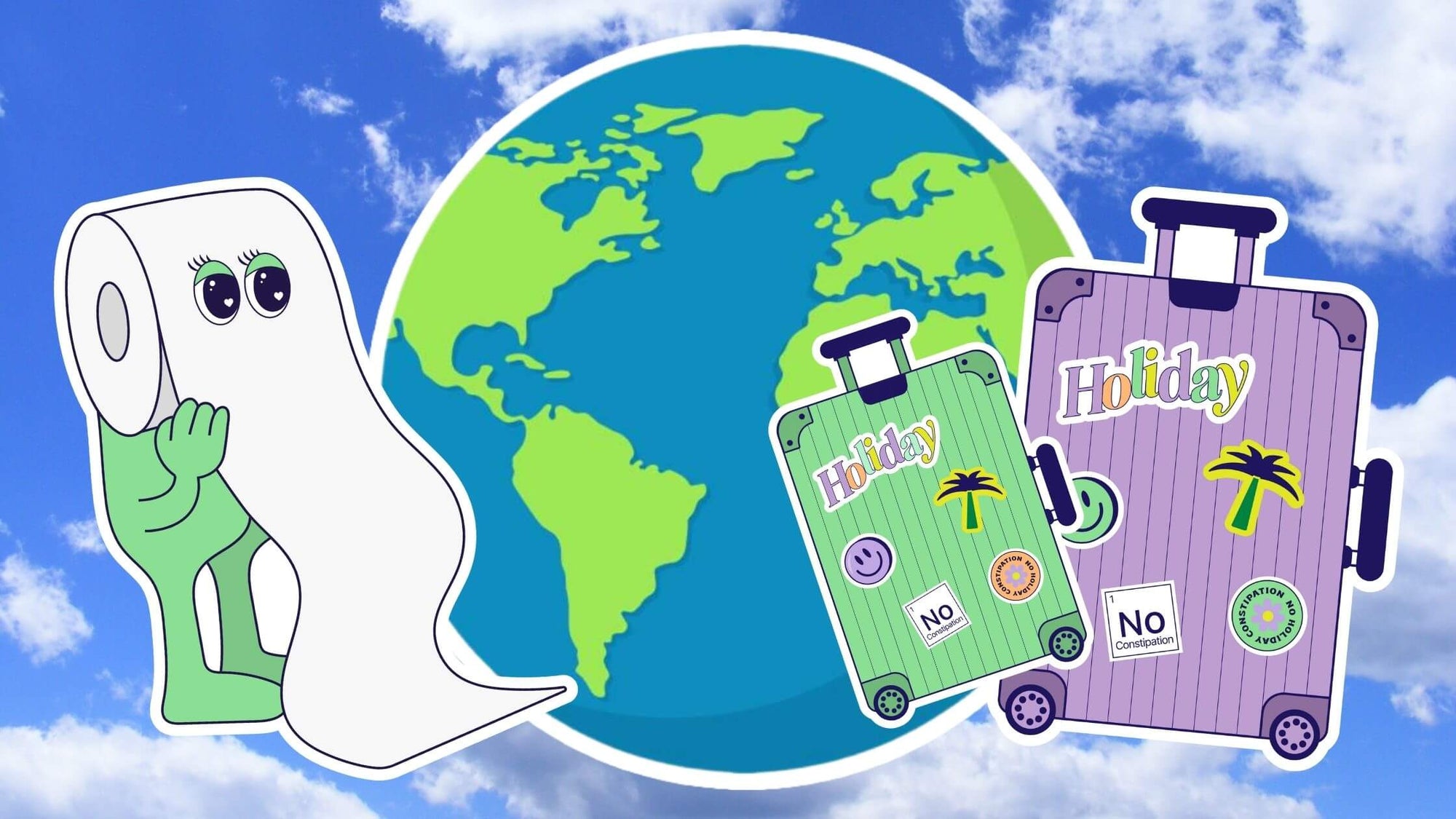Water retention, medically known as oedema, can lead to bloating, swelling, and puffiness. Usually, it affects the gastrointestinal tract and the lower limb extremities, causing abdominal bloating and swollen legs, ankles, and feet. It can impact all areas of the body and is caused by a wide range of different things, including hormonal fluctuations, medications, diet, and lifestyle factors.
For some people, water retention comes and goes, resolving on its own within a few hours or days. For others, it’s a chronic issue that seems to plague them every week. Similarly, the severity of each person’s water retention can vary depending on the root cause of the issue and the steps they take to resolve the swelling.
Most of the causes of water retention and puffiness in the body are completely benign and nothing to be too concerned about. However, there are many health conditions that cause oedema, and proper management of these conditions is essential for resolving these symptoms and maintaining good health.
Water retention can be uncomfortable to deal with. If it’s something you experience on a constant basis, we feel for you! Luckily, there are lots of great things you can do to help your body get rid of excess liquids, reduce your bloating, and improve your quality of life.
We’re going to provide some top tips for reducing water retention, puffiness, and bloating. First, we want to cover what water retention is and what causes your body to hold onto more water.
What Is Water Retention?
Water retention refers to the accumulation of fluids or liquids in the body’s tissues. Usually, it occurs in the abdominal region, causing abdominal distention, and in the hands, calves, ankles, and feet.
In a healthy individual without any oedema, fluids are transferred between the blood and tissues on a relatively even basis. The net movement of fluid from the bloodstream into the tissues and vice versa is pretty much zero, meaning there is no accumulation of fluids where they shouldn’t be.
However, if there is something impacting the body’s ability to regulate this balance of fluids between the blood and tissues, it can cause more liquids to move into the tissues than is moving back into the bloodstream. This leads to puffiness and swelling in the affected areas.
While oedema usually doesn’t cause any serious side effects in the long term, it can be a symptom of an underlying health issue that you need to address. Plus, it’s uncomfortable and can make you feel self-conscious if it’s quite severe. Addressing and resolving water retention can, therefore, improve your health, confidence, and quality of life.
What Causes Water Retention?
There is a huge range of things that can cause your body to hold onto more water than usual and disrupt the flow of liquids between your bloodstream and tissues. Mainly, these things include your lifestyle habits, diet, hormones, pre-existing health conditions, and medications.
Let’s explore each of these key factors in more detail to learn how they contribute to water retention.
Lifestyle factors
Sitting down or standing up for extended periods of time can cause blood to pool in your lower legs and make it harder for your body to pump fluids back out of the tissues into the bloodstream, leading to lower leg oedema. For example, if you work in an office where you’re sitting at a desk all day or in a retail store where you’re standing at the tills for several hours, you might be more prone to getting swollen ankles and feet.
It’s for this reason that you can get bloated when on holiday. Generally, travelling and being on vacation are associated with being more sedentary. Even if you’re usually a very active person, being sat down all day on holiday can disrupt your body’s fluid regulation processes and cause temporary oedema.
Carrying extra weight can also contribute to water retention. Extra body fat can place stress on your heart, blood vessels, and kidneys, making it difficult for them to actively pump liquids out of the tissues. In turn, you can end up with abdominal bloating and puffiness under the skin.
Dietary factors
Being dehydrated is a common cause of swelling (particularly in the lower body). When you don’t take in enough fluids in your diet, your body can hold onto more water in response. These fluids accumulate in the tissues and cause you to feel bloated.
Eating a high-sodium, low-potassium diet can also contribute to oedema. Sodium and potassium regulate fluid balance in the body, with the former causing your body to hold onto fluids more easily.
Consuming too much salt in your diet, which can happen if you indulge in lots of takeaways and prepackaged foods but rarely consume potassium-rich foods, you’re setting yourself up for water retention!
Consuming inadequate amounts of protein can also increase water retention in the body’s tissues. A protein in your blood called albumin helps to maintain the balance of liquids between your bloodstream and tissues. However, consuming a low-protein diet can lower the levels of albumin in your blood and disrupt this harmonious balance.
Consuming high amounts of caffeine or alcohol may lead to bloating and puffiness. Caffeine and alcohol are substances known as diuretics, meaning they increase urine output. The more toilet trips you take, the more fluids you’re excreting from your body and the more at risk you are of becoming dehydrated. As we’ve mentioned above, dehydration is a risk factor for oedema.
Hormones
Your hormones fluctuate naturally. Some hormones, such as cortisol and melatonin, change throughout the day. Others fluctuate across the course of the month, such as the hormones that regulate your menstrual cycle (your period), which include oestrogen progesterone, LH, and FSH.
While hormonal fluctuations are completely natural, normal, and healthy, they can affect fluid balance within your body. If you’re a woman, you probably find that you feel bloated before your period and during your period itself before this water retention subsides as you enter your next cycle.
Similarly, the hormonal changes associated with pregnancy can contribute to increased water retention in the body. Many women find that they feel bloated and puffy in the early stages of pregnancy due to high levels of a hormone called human chorionic gonadotropin (hCG).
Generally, abdominal bloating subsides as women enter their second and third trimesters of pregnancy. However, they find that their lower legs and ankles become swollen during this time due to the increase in blood volume and additional body weight that are associated with late pregnancy.
Sticking with the theme of women’s hormones, menopause is another cause of bloating and water retention. The significant and rapid drop in reproductive hormones throws the body’s fluid regulation mechanisms out of whack. In particular, it’s the drop in hormones oestrogen and progesterone that can lead to oedema in the lower legs.
Pre-existing health conditions
An allergic reaction, either to an insect bite or food component, can lead to temporary bloating. Similarly, an acute injury, such as a cut or wound, can lead to temporary swelling in the affected area of the body.
When you experience an allergic reaction or acute injury, the body increases blood flow around the body to transport more white blood cells to the affected area (inflammatory response). These white blood cells can help to eliminate dangerous pathogens and reduce the risk of associated infections following an inflammatory response. In turn, you’ll find that you get temporary swelling and puffiness following an allergic response to injury.
There are also a bunch of chronic health conditions that can contribute to water retention. Oedema is a very common symptom that those with high blood pressure, heart failure, liver disease, chronic kidney disease (CKD), chronic venous insufficiency, thyroid disease, and chronic lung disease are particularly prone to experiencing.
Medications
The contraceptive pill, blood pressure medications, calcium channel blocks, non-steroidal anti-inflammatory drugs (NSAIDs), and corticosteroids are groups of medications that change your body’s water balance. Taking these medications in the short-term or long-term can cause you to experience more bloating throughout your body, especially in your lower limbs.
What Are the Signs of Water Retention?
You might not notice mild water retention, or if you do, you might be able to ignore it until it resolves on its own. However, it’s good to be aware of the signs of water retention so you can take note of how often it occurs and take action to reduce it if needed.
The common signs of water retention are:
- Swelling
- Bloating
- Puffiness
- A feeling of tightness in the abdomen or under the skin
- Joint stones
- Weight gain due to the accumulation of fluids in the body
- Shortness of breath
- High blood pressure
- Pitting oedema (indentations in the skin when you press on it)
- A purple hue on the surface of the skin
If you’re experiencing the bottom two symptoms on this list, it’s worth seeking advice from a medical professional. Pitting oedema can be a sign of cardiovascular, peripheral artery disease, or venous insufficiency. It’s important to get properly assessed by a qualified healthcare professional to identify underlying health problems and get the necessary treatments.
How Can I Avoid Water Retention?
Those of you who experience regular bloating and often wake up feeling puffy might be searching for some effective bloat-relieving remedies.
Whether your water retention is transient or long-term, the following strategies should help to manage and reduce your swelling:
- Stay hydrated and limit your intake of caffeinated and alcoholic drinks. If you do drink coffee, tea, or alcohol, make a conscious effort to have some more water to balance out their diuretic effects.
- Cut back on takeaways and junk foods and instead focus on a diet full of whole grains, fruits, and vegetables. Doing so will decrease your sodium intake and increase your potassium intake to aid fluid regulation in your body. Note that this tip only applies if you consume a lot of junk foods and have a high sodium intake. If you’re normally a healthy eater, you might even be deficient in sodium. If you’re unsure how to modify your diet appropriately, speak to a registered dietitian.
- Consume enough protein in your diet (the recommendation for the average adult is at least 0.8 grams of protein per kilogram of body weight a day).
- Supplement your diet with a probiotic and digestive enzyme supplement to improve your digestion and reduce the risk of abdominal bloating.
- Increase your intake of natural bloat-relieving foods like ginger, cinnamon, turmeric, garlic, avocados, and bananas.
- Keep yourself physically active and make an effort to stretch your legs and take a short walk every hour if you have a sedentary job. Try to schedule a couple of workouts into your routine each week to keep your cardiovascular system healthy and efficient.
- Take steps to maintain optimal hormone levels if you suspect they’re imbalanced and causing water retention. You might need to speak to a specialist for guidance on lifestyle, dietary, and medication changes to support your hormone production.
- Stay in touch with your doctor, nurse, or dietitian if you’re under their care for a chronic health condition.









